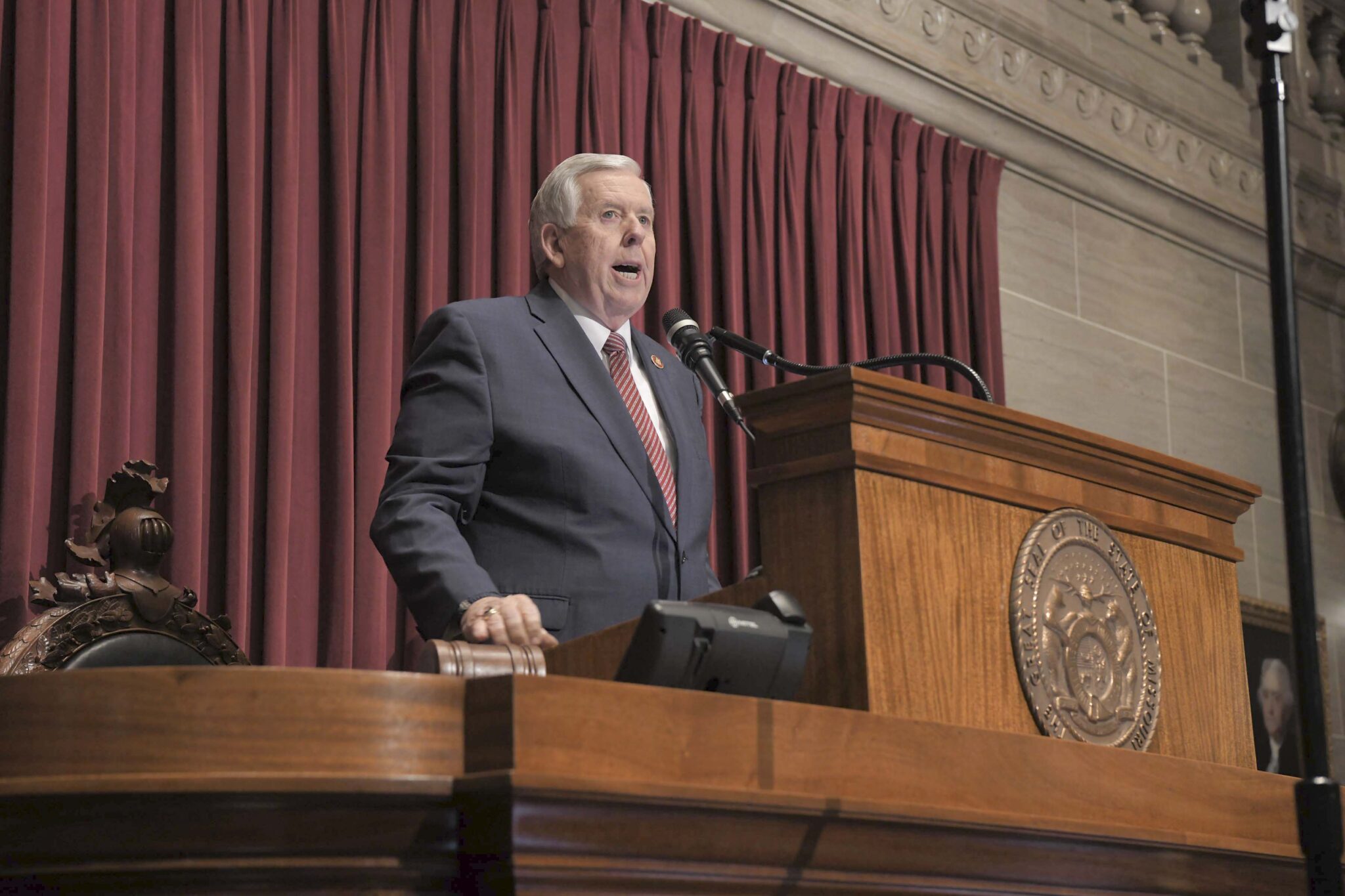Effort to boost payment for wrongly convicted vetoed by Missouri governor

The state shouldn’t be responsible for paying people released after their convictions have been overturned, Gov. Mike Parson wrote explaining his veto of a bill that expands who is eligible for compensation for being wrongly imprisoned.
Under current law, only someone shown to be innocent by means of a DNA test is eligible for compensation after being released. The law allows $36,500 a year for the same number of years the person was wrongly incarcerated.
The vetoed bill would have increased the payment to $65,000 a year and expanded it to include people freed by the conviction review process created in a 2021 law.
In a letter explaining his veto, Parson wrote that crimes are investigated and prosecuted locally and that juries and judges are from the community where the person was tried and convicted. He objects to the state being made to pay for the mistakes, Parson wrote.
“Local governments should bear the financial cost of their own actions,” he wrote.
The expanded eligibility for the payments is another reason to object to the bill, Parson wrote. It would have allowed payments for anyone released after a hearing that demonstrates the person’s innocence, the letter states.
“The vagueness of the language could allow anyone released from prison this way who simply claimed innocence to receive compensation,” Parson wrote. “I am opposed to subjecting taxpayers to such a nebulous standard.”
The bill’s sponsor, state Sen. Tony Luetkemeyer, R-Parkville, could not be reached for comment. In a May interview, he said the current provisions for compensating people released after a finding of innocence are obsolete and inadequate.
“The worst thing that the criminal justice system can do is convict and incarcerate an innocent person,” Luetkemeyer said. “And so this statute reflects that when a state has that happen, that we owe some debt to the individual who’s wrongfully incarcerated.”
The compensation provision was included in a wide-ranging bill addressing criminal justice issues. The bill would have ended the sentencing disparity for crack and powder cocaine and bar the courts from trying children aged 12 or 13 as adults, two tough-on-crime policies from the 1980s and early 1990s criticized as falling disparately on people from minority communities.
The bill would also have enacted “Blair’s Law” making it a crime to discharge a gun within a city. The law was named for Blair Shanahan Lane, killed July 4, 2011, when a celebratory bullet fired into the air struck her while she enjoyed Independence Day activities. She was 11.
“This veto is heartbreaking,” state Sen. Greg Razer, D-Kansas City, wrote in a text message on Thursday. “Blair’s Law would have saved property damage, injuries, and the lives of innocent Missourians.”
Four people were injured Tuesday by celebratory gunfire in Kansas City, the Kansas City Star reported.
Razer wrote he is “heartbroken for future victims of this disregard for the common sense one should expect from gun ownership” and “disheartened that the one piece of gun legislation that can unify Democrats and Republicans, the one thing we seem to agree on and all could be proud of, was lost at the last moment.”
Other significant provisions in the bill would have:
- Established training standards for chiefs of police under the Peace Officer Standards and Training Commission. Departments with chiefs who have not met the standard could not receive any commission training funds or federal and state grants.
- Expanded the reasons for denying a person a commission as a peace officer to include crimes committed in other states and “any act of gross misconduct indicating inability to function as a peace officer.”
- Expanded the conviction review process to allow reviews by the state Office of Prosecution Services and fix a loophole that prevented prosecutors from seeking a review in cases moved from their counties on a change of venue.
The bill would also have allowed people who committed some offenses while teens or young adults to have their records expunged, but Parson said the language in that part of the bill was too broad.
It would have allowed expungement for people who committed sex offenses before the state established a registry or before their particular offense was included on the list of crimes that require registration.
“This change would allow for some serious offenses to be expunged,” Parson wrote, including child pornography or sexual exploitation of a minor for offenses committed before 2004.
“I am deeply concerned that someone could have committed and been convicted of such heinous offenses, only late to receive a pass under the provisions of this bill,” Parson wrote.
Parson said he would have signed the bill absent the provision on compensation and expungement.
The bill “contains many public safety measures that we support and would like to sign into law, including Blair’s Law, Max’s Law, increased penalties for violent repeat offenders and gun crimes, and strengthening the public defender system,” Parson said in a news release. “However, in this case, these unintended consequences unfortunately outweigh the good.”
Miss Clipping Out Stories to Save for Later?
Click the Purchase Story button below to order a print of this story. We will print it for you on matte photo paper to keep forever.

